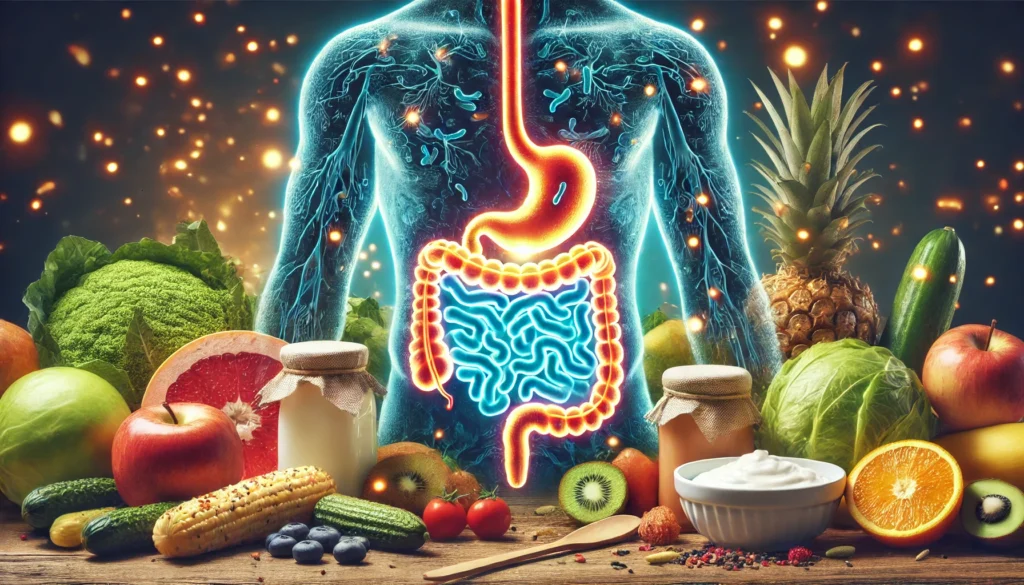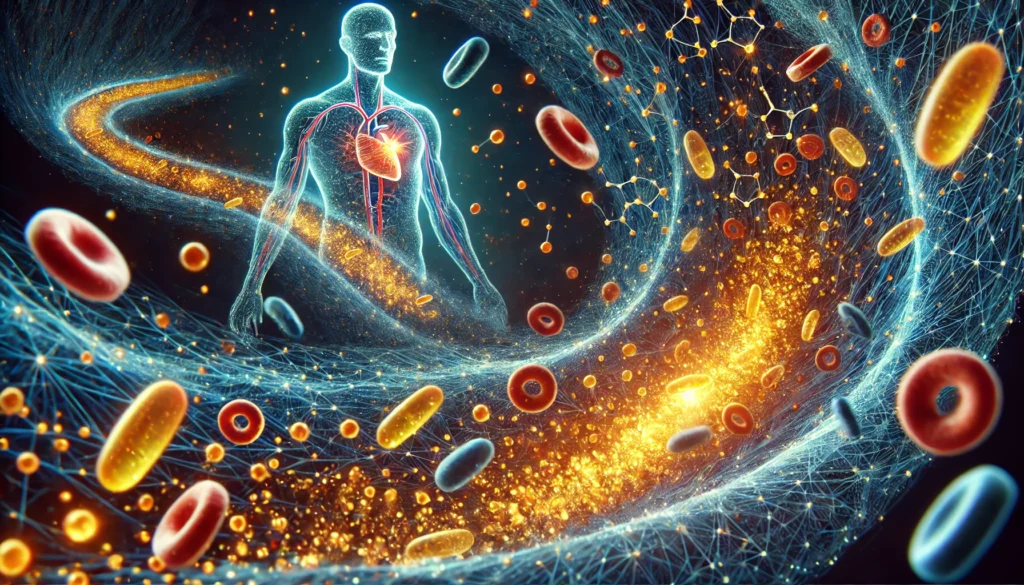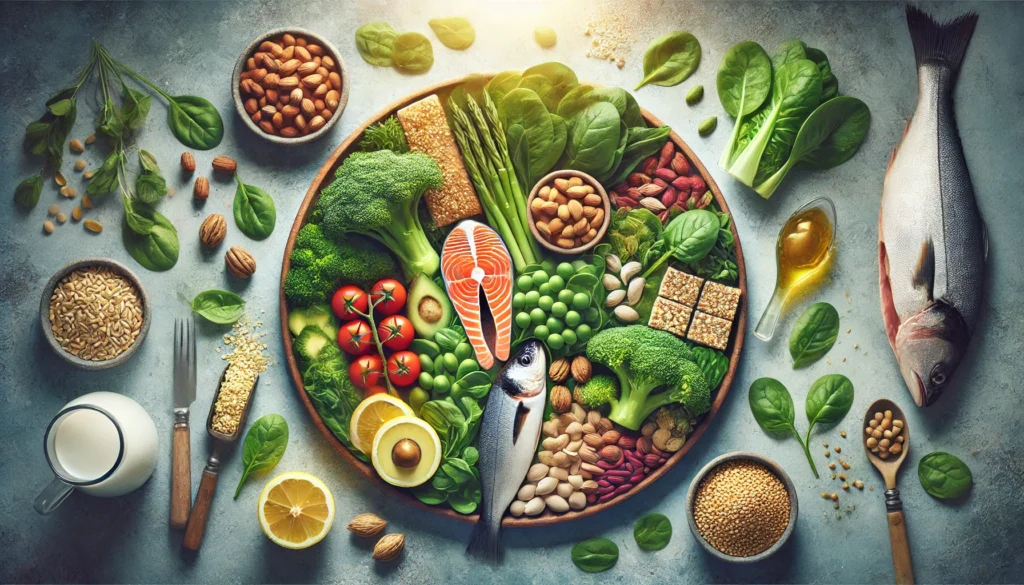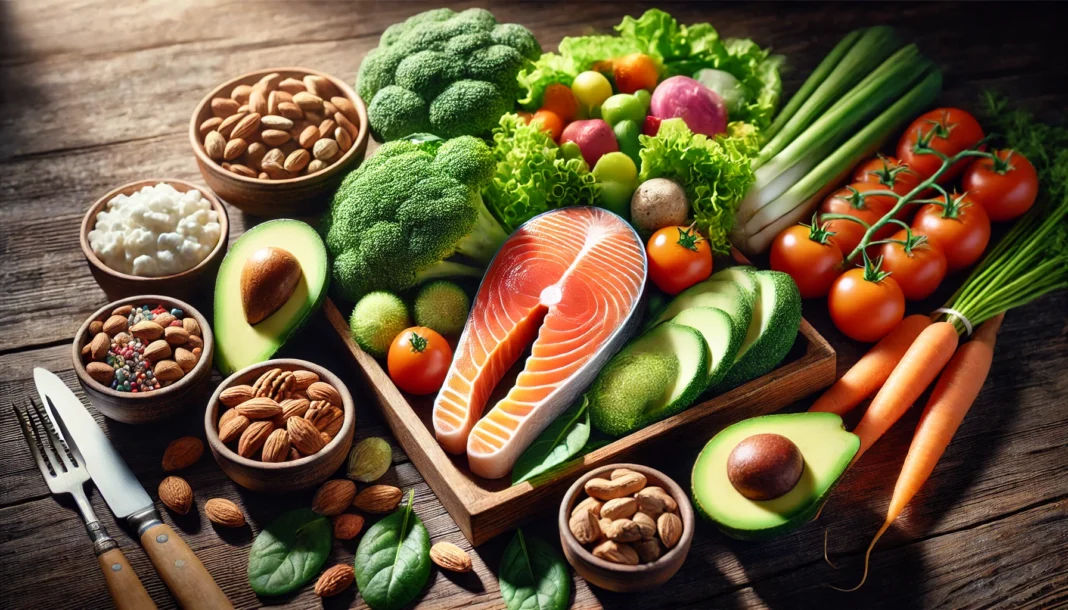Understanding Vitamin Absorption and Its Importance
The human body requires a variety of essential vitamins and minerals to function optimally. However, consuming these nutrients is only one part of the equation—how effectively the body absorbs them determines their actual benefit. Understanding the complex mechanisms behind vitamin absorption can help individuals make informed decisions about their diet, supplement intake, and lifestyle choices. Several factors, including digestive health, enzyme activity, and nutrient synergy, play crucial roles in ensuring optimal absorption of vitamins and minerals. Without proper absorption, even the highest-quality supplements or nutrient-rich diets may fail to deliver their full benefits, leading to deficiencies and potential health issues.
You may also like: How to Improve Nutrient Absorption: Unlock the Benefits of Bioavailable Nutrients for Holistic Wellness
The absorption of vitamins and minerals occurs primarily in the small intestine, where they are broken down and transported into the bloodstream. Some vitamins, like the fat-soluble ones—A, D, E, and K—require dietary fats for absorption, while water-soluble vitamins, such as B-complex vitamins and vitamin C, dissolve in water and are absorbed directly into the bloodstream. Nutrient interactions, gut health, and metabolic efficiency all impact the rate and effectiveness of absorption. By recognizing these factors, individuals can implement strategies to enhance nutrient uptake and maximize the health benefits of their dietary choices.

The Role of Gut Health in Vitamin Absorption
A well-functioning digestive system is fundamental to the absorption of vitamins and minerals. The gut microbiome, a diverse ecosystem of beneficial bacteria, plays a vital role in breaking down food, producing enzymes, and facilitating nutrient absorption. If the gut is compromised due to poor diet, antibiotic use, or chronic stress, it can lead to malabsorption issues and deficiencies. One of the most effective ways to enhance gut health is by incorporating probiotic-rich foods, such as yogurt, kefir, sauerkraut, and kimchi, which support the growth of beneficial bacteria. Additionally, prebiotic foods like garlic, onions, and bananas nourish these microbes, promoting a balanced gut environment.
Digestive enzymes also play a significant role in breaking down macronutrients and ensuring the bioavailability of vitamins and minerals. Enzyme deficiencies can lead to incomplete digestion and hinder the body’s ability to absorb key nutrients. Consuming raw, enzyme-rich foods such as papaya, pineapple, and fermented vegetables can help improve enzymatic activity. Furthermore, maintaining adequate stomach acid levels is crucial, as it facilitates the breakdown of proteins and the release of essential vitamins, particularly vitamin B12 and minerals like calcium and magnesium. Those experiencing symptoms of low stomach acid, such as bloating and indigestion, may benefit from incorporating apple cider vinegar or digestive enzyme supplements to support proper nutrient absorption.
Enhancing the Absorption of Fat-Soluble Vitamins
Fat-soluble vitamins—A, D, E, and K—are essential for various bodily functions, including vision, immune support, and bone health. However, these vitamins require dietary fats for absorption. Consuming healthy fats such as avocados, nuts, seeds, olive oil, and fatty fish can significantly enhance the absorption of these vitamins. For instance, pairing vitamin D-rich foods like salmon or fortified dairy products with olive oil or nuts can boost its bioavailability. Similarly, incorporating vitamin K-rich greens like kale and spinach with a source of healthy fat, such as avocado or flaxseed oil, ensures optimal uptake.
Another factor that influences fat-soluble vitamin absorption is the presence of bile acids, which are produced by the liver and stored in the gallbladder. Bile emulsifies fats, making them more accessible for absorption. Individuals with gallbladder issues or those who have undergone gallbladder removal may experience difficulty absorbing fat-soluble vitamins. In such cases, digestive enzyme supplements containing bile salts can aid in the absorption process. Additionally, consuming a well-balanced diet that includes both monounsaturated and polyunsaturated fats can further support the bioavailability of these essential nutrients.
Strategies to Optimize the Absorption of Water-Soluble Vitamins
Unlike fat-soluble vitamins, water-soluble vitamins dissolve in water and are readily absorbed into the bloodstream. However, they are not stored in the body for long periods, necessitating consistent daily intake. Vitamin C and B-complex vitamins, including B6, B12, and folate, fall into this category. One effective way to enhance their absorption is by consuming them in their natural, whole-food forms. For example, vitamin C from citrus fruits, bell peppers, and strawberries is more bioavailable than synthetic ascorbic acid found in some supplements.
B vitamins, particularly B12, require intrinsic factor, a protein produced in the stomach, for proper absorption. Individuals with digestive disorders such as Crohn’s disease or those who have undergone gastric bypass surgery may have difficulty absorbing vitamin B12 from food sources. In such cases, sublingual or methylated B12 supplements can be more effective in ensuring adequate levels. Additionally, vitamin C enhances iron absorption, making it beneficial to pair vitamin C-rich foods with iron-containing plant sources like spinach and lentils.
Nutrient Synergy: How Vitamins and Minerals Work Together
The absorption of vitamins and minerals is often influenced by their interactions with other nutrients. Some vitamins and minerals enhance each other’s absorption, while others can compete for absorption sites in the body. For example, vitamin D enhances calcium absorption, making it crucial to consume them together for optimal bone health. Dairy products, fortified plant-based milks, and leafy greens paired with vitamin D-rich foods like eggs or salmon can maximize calcium uptake.
On the other hand, certain minerals can interfere with each other’s absorption. For instance, excessive calcium intake can hinder the absorption of magnesium and zinc. To avoid competition, it is advisable to space out the consumption of high-dose mineral supplements throughout the day. Additionally, consuming iron with vitamin C enhances its absorption, while excessive calcium can inhibit it. Understanding these nutrient interactions allows for strategic meal planning that optimizes the bioavailability of essential vitamins and minerals.
The Impact of Lifestyle Factors on Vitamin Absorption
Beyond diet, lifestyle factors play a significant role in determining how efficiently the body absorbs vitamins and minerals. Stress, for example, can negatively impact digestion and reduce nutrient absorption. Chronic stress elevates cortisol levels, which can interfere with stomach acid production and enzyme activity. Implementing stress management techniques such as meditation, deep breathing exercises, and regular physical activity can help support digestive function and nutrient uptake.
Hydration is another critical factor in vitamin absorption. Water is essential for dissolving water-soluble vitamins and facilitating their transport throughout the body. Dehydration can impair circulation and reduce the efficiency of nutrient delivery. Ensuring adequate daily water intake, particularly when consuming supplements or high-fiber foods, supports optimal absorption and overall health.

Frequently Asked Questions (FAQ) on Vitamin Absorption
What are some overlooked factors that affect vitamin absorption?
Beyond diet and supplementation, several lesser-known factors influence vitamin absorption. Psychological stress, for instance, has been shown to impact digestive efficiency, reducing the body’s ability to absorb vitamins and minerals effectively. Sleep quality also plays a vital role, as inadequate rest can lead to hormonal imbalances that disrupt digestion and nutrient uptake. Additionally, exposure to environmental toxins, such as pesticides and heavy metals, can interfere with metabolic pathways necessary for vitamin absorption. Lifestyle choices like meal timing and food combination strategies also determine how well nutrients are assimilated. Understanding these factors can help individuals optimize their vitamin intake beyond traditional dietary changes.
How does hydration influence the absorption of vitamins and minerals?
Water is essential for dissolving water-soluble vitamins and ensuring they reach cells efficiently. Dehydration, even at mild levels, can impair circulation and slow down metabolic processes, reducing the absorption of vitamins and minerals. It also affects digestive enzymes, which are necessary for breaking down food and extracting nutrients. Drinking enough water throughout the day, particularly when taking vitamin supplements, can improve the efficiency of nutrient transport. Additionally, consuming herbal teas and electrolyte-rich fluids can further support hydration and, consequently, the body’s ability to absorb vitamins better.
What are some advanced strategies for increasing vitamin absorption?
One effective strategy is to take advantage of food synergies by pairing specific vitamins and minerals that enhance each other’s bioavailability. For example, combining magnesium with vitamin D improves calcium uptake, while consuming vitamin C-rich foods alongside iron enhances its absorption. Another advanced approach involves intermittent fasting, which has been suggested to improve gut microbiome health and enzyme efficiency, indirectly enhancing vitamin absorption. Additionally, engaging in light physical activity before meals has been shown to stimulate digestive juices and improve nutrient assimilation. Tailoring supplement intake to individual circadian rhythms—such as taking B vitamins in the morning for energy and magnesium at night for relaxation—can also enhance absorption efficiency.
What supplements help your body absorb nutrients more effectively?
Certain supplements can significantly improve nutrient bioavailability. For example, digestive enzyme supplements support the breakdown of macronutrients, ensuring that vitamins and minerals are efficiently absorbed. Probiotic supplements enhance gut microbiota balance, which plays a crucial role in vitamin synthesis and absorption. Additionally, black pepper extract (piperine) has been shown to increase the bioavailability of key nutrients, such as curcumin and vitamin B6. Liposomal formulations of vitamins, particularly vitamin C and glutathione, provide higher absorption rates compared to standard supplements. Lastly, incorporating omega-3 fatty acids into one’s diet enhances the absorption of fat-soluble vitamins, such as A, D, E, and K.
How does gut microbiome health affect vitamin absorption?
The gut microbiome plays a direct role in the synthesis and absorption of several essential vitamins, particularly B vitamins and vitamin K. A diverse and balanced gut flora helps break down food more efficiently, increasing nutrient bioavailability. Factors like antibiotic use, poor dietary choices, and chronic stress can disrupt microbiome balance, leading to decreased vitamin absorption. Consuming fermented foods such as kimchi, sauerkraut, and kefir can help restore gut health and improve the body’s ability to absorb vitamins better. Additionally, prebiotic-rich foods like onions, garlic, and leeks support beneficial bacteria that enhance digestion and nutrient uptake.
What is the best way to absorb vitamins for individuals with digestive disorders?
Individuals with conditions such as irritable bowel syndrome (IBS), Crohn’s disease, or celiac disease often struggle with malabsorption issues. In such cases, choosing liquid or sublingual vitamin formulations can bypass the digestive system, allowing for more efficient absorption. Additionally, consuming smaller, more frequent meals can prevent overburdening the digestive tract, leading to improved vitamin uptake. Personalized probiotic supplementation tailored to specific gut imbalances can also enhance digestive efficiency. Enzyme therapy, which involves taking supplemental digestive enzymes, may help those with compromised digestion break down food more effectively. Working with a healthcare professional to monitor nutrient levels and adjust supplementation accordingly can further improve outcomes.
How does cooking impact the absorption of vitamins and minerals?
The cooking method used can either enhance or reduce the bioavailability of vitamins and minerals. For example, steaming vegetables helps retain water-soluble vitamins like vitamin C and B vitamins, whereas boiling can cause significant nutrient loss. On the other hand, cooking certain vegetables, such as tomatoes and carrots, increases the bioavailability of key antioxidants like lycopene and beta-carotene. Using healthy fats while cooking can also boost the absorption of fat-soluble vitamins. Employing gentle cooking methods and consuming raw foods where appropriate can maximize nutrient retention and absorption.
Are there specific meal timing strategies to improve vitamin absorption?
Taking vitamins at the right time can significantly influence their effectiveness. Fat-soluble vitamins should be consumed with meals that contain healthy fats to enhance absorption. Water-soluble vitamins, such as vitamin C and B-complex vitamins, are best taken in the morning to support energy production throughout the day. Some minerals, such as magnesium, are best taken in the evening due to their calming effects on the nervous system. For individuals who engage in fasting, consuming vitamin-rich meals after a fast can optimize nutrient uptake. Understanding how different vitamins interact with meal timing allows for more strategic and effective nutrient absorption.
How do medications impact vitamin absorption?
Certain medications can interfere with the absorption of vitamins and minerals, leading to deficiencies over time. For example, proton pump inhibitors (PPIs) reduce stomach acid production, which is essential for the absorption of vitamin B12, calcium, and magnesium. Antibiotics can disrupt gut microbiota, affecting the synthesis of B vitamins and vitamin K. Some diuretics lead to increased excretion of potassium and magnesium, making supplementation necessary for individuals on long-term treatment. Those taking long-term medication should consult healthcare providers to monitor nutrient levels and make dietary adjustments accordingly. Being proactive about nutrient intake can help counteract potential deficiencies caused by medications.
What role does metabolism play in vitamin absorption?
Metabolic rate influences how efficiently the body processes and utilizes vitamins and minerals. Individuals with higher metabolic rates may require more frequent nutrient intake to maintain optimal levels. Hormonal imbalances, such as thyroid dysfunction, can also impact vitamin absorption, leading to potential deficiencies in iodine, selenium, and vitamin D. Engaging in regular physical activity can support metabolic efficiency, ensuring that vitamins are processed effectively. Additionally, consuming metabolism-boosting foods, such as green tea and protein-rich meals, can enhance overall nutrient utilization. Monitoring metabolic health can provide deeper insights into individualized vitamin absorption needs.

Conclusion: Maximizing Nutrient Absorption for Optimal Health
Optimizing vitamin absorption is a multifaceted process that involves dietary choices, gut health, nutrient synergy, and lifestyle factors. By incorporating healthy fats, digestive enzymes, and probiotic-rich foods, individuals can enhance the absorption of both fat-soluble and water-soluble vitamins. Understanding how vitamins interact with other nutrients allows for strategic meal planning that promotes bioavailability. Additionally, managing stress, staying hydrated, and adopting a well-balanced diet ensure that the body efficiently absorbs and utilizes essential vitamins and minerals. Implementing these strategies can significantly enhance overall well-being, allowing individuals to reap the full benefits of their nutrient intake.
vitamin absorption, how to absorb vitamins better, how to increase vitamin absorption, absorption of vitamins and minerals, best way to absorb vitamins, what supplements help your body absorb nutrients, vitamin supplements absorption, vitamins that help body absorb nutrients, gut health and vitamin absorption, digestive enzymes for nutrient absorption, fat-soluble vitamins absorption, water-soluble vitamins absorption, probiotics and vitamin absorption, hydration and nutrient uptake, food synergy for vitamin absorption, meal timing for better absorption, metabolism and nutrient absorption, impact of stress on vitamin absorption, cooking methods and vitamin retention, lifestyle factors affecting vitamin absorption.
Further Reading:
Absorbing Vitamins Better: The Complete Guide to Increasing Vitamin and Mineral Absorption
Intestinal absorption of water-soluble vitamins in health and disease
What Form of Vitamin Supplements Offers the Best Absorption?
Disclaimer
The information contained in this article is provided for general informational purposes only and is not intended to serve as medical, legal, or professional advice. While NewsHealthWatch strives to present accurate, up-to-date, and reliable content, no warranty or guarantee, expressed or implied, is made regarding the completeness, accuracy, or adequacy of the information provided. Readers are strongly advised to seek the guidance of a qualified healthcare provider or other relevant professionals before acting on any information contained in this article. NewsHealthWatch, its authors, editors, and contributors expressly disclaim any liability for any damages, losses, or consequences arising directly or indirectly from the use, interpretation, or reliance on any information presented herein. The views and opinions

